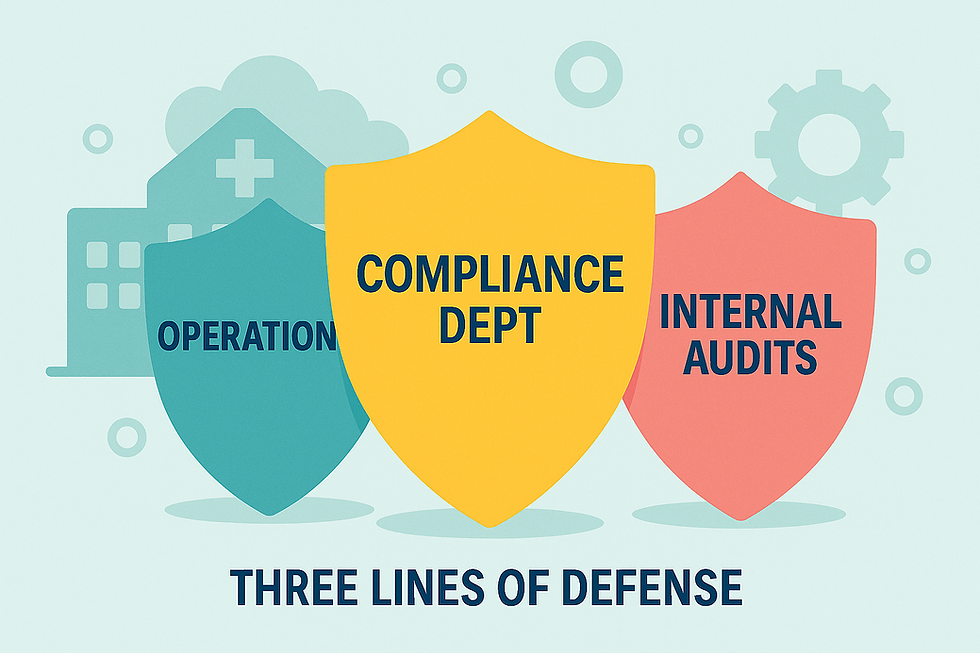Navigating New Waters: HIPAA Final Rule to Support Reproductive Health
- Jessica Zeff

- Apr 26, 2024
- 2 min read
The recent modifications to HIPAA, specifically targeting information sharing for reproductive health care, have stirred significant discussions among healthcare compliance professionals. This blog explores the changes, their implications, and provides a compliance roadmap in light of these updates.
Understanding the New HIPAA Information Sharing Rules
In the wake of the overturning of Roe v. Wade, there has been a heightened focus on privacy concerns related to reproductive health services. To address these, the U.S. Department of Health and Human Services (HHS) issued new rules enhancing the privacy protections for reproductive health care under HIPAA.
Key Changes:
· Stronger Protections for Reproductive Health Information: The new rules clarify that covered entities are not required to disclose private health information (PHI) related to reproductive health care if it is not expressly required by law. This is particularly pertinent in states with restrictive reproductive health laws.
· Limitations on Disclosures to Law Enforcement: The revised rules impose stricter guidelines on when PHI related to reproductive health can be disclosed to law enforcement agencies. This includes requiring clear, affirmative evidence of a lawful process, such as a court order or warrant, before any disclosure is made.
· Enhanced Patient Rights: Patients now have greater control over their PHI, including more robust rights to inspect and obtain copies of their records. This is aimed at empowering patients to protect their privacy proactively.
Compliance Considerations for Healthcare Providers
Healthcare providers must now navigate these new rules while ensuring they remain compliant with existing HIPAA regulations and other applicable laws. Here are several steps to ensure compliance:
· Policy Revision and Training: Update privacy policies and procedures to reflect the new requirements. Ensure that all staff members are trained on the new rules, with a focus on scenarios involving reproductive health information.
· Enhance Security Measures: Review and strengthen security measures for storing and processing PHI, particularly digital records, to prevent unauthorized access or breaches that could lead to exposure of sensitive reproductive health information.
· Patient Communication: Clearly communicate to patients their rights concerning their PHI and any changes in the handling of their reproductive health information.
Transparency can build trust and help in compliance.
Implications for the Healthcare Industry
The revised HIPAA rules represent a significant shift in how reproductive health information is treated, reflecting broader societal changes and concerns. Healthcare providers must be vigilant in updating their practices and policies to align with these rules to avoid potential legal issues and build trust with their patients.
For compliance professionals, these changes underscore the need to continuously monitor legal developments and adapt compliance strategies accordingly. Engaging with legal experts and participating in healthcare compliance forums can provide insights and aid in navigating these complex regulations.
Conclusion
The updated HIPAA information sharing rules are a testament to the dynamic nature of healthcare privacy and the need for ongoing vigilance in compliance practices. By understanding and implementing these new rules, healthcare providers can ensure they not only comply with the law but also protect the privacy and trust of their patients.
Do you have questions about this blog? Please contact jessicazeff@simplycomplianceconsulting.com.





Comments